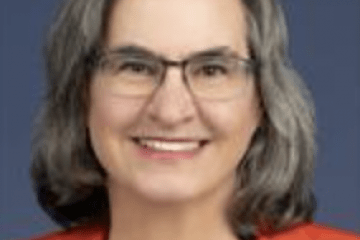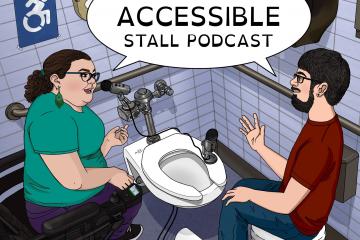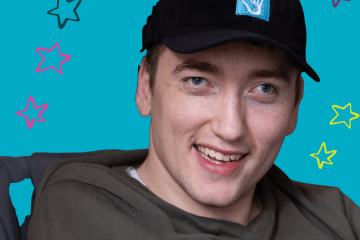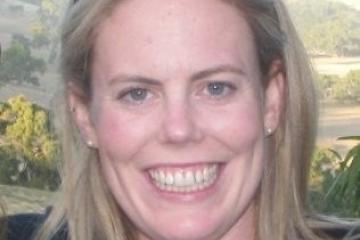New Horizons Virtual Town Hall 6 - Cerebral Palsy Grows Up!
Hank Chambers, MD Pediatric Orthopedic Surgeon at Rady Children’s Hospital in San Diego
Hank Chambers, MD, is a pediatric orthopedic surgeon at Rady Children’s Hospital in San Diego. He also serves as a Professor of Clinical Orthopedic Surgery at the University of California at San Diego. After medical school at Tulane University School of Medicine, he completed an orthopedic surgery residency at Brooke Army Medical Center in San Antonio, TX.He finished a pediatric orthopedic surgery fellowship in San Diego under David Sutherland, Scott Mubarak and Dennis Wenger in 1990.
Dr. Chambers is currently the Director of the Southern Family Center for Cerebral Palsy at Rady Children’s Hospital and a Professor of Clinical Orthopedic Surgery at UC San Diego School of Medicine. He was the Chief of Staff at Rady Children’s Hospital San Diego from 2004-2006 and currently serves as the director of the Motion Analysis Laboratory. Dr. Chambers treats pediatric gait disorders, sports injuries and cerebral palsy. His research areas include cerebral palsy, motion analysis, and controlling spasticity with botulinum toxin.
He is active nationally in many organizations including the American Academy of Orthopedic Surgeons, the Pediatric Orthopedic Society of North America, and the American Academy of Pediatrics. He is a Past President of the American Academy for Cerebral Palsy and Developmental Medicine as well as a past President of PRISM, a pediatric sports medicine research society. His wife, Jill, is active in many local and national patient advocacy groups and is a healing touch provider at Rady Children’s Hospital. His son, Sean, who has cerebral palsy, is currently in an assisted living situation in San Diego and his other son, Reid is a pediatric orthopedic surgeon at Nationwide Children’s Hospital in Columbus OH.
Heakyung Kim, MD Vice Chair and A. David Gurewitsch Professor of Rehabilitation Medicine, Professor of Pediatrics and Orthopedic Surgery at Columbia University Irving Medical Center and Weill Cornell Medical Center
Heakyung Kim, MD serves as Vice Chair and A. David Gurewitsch Professor of Rehabilitation Medicine and Professor of Pediatrics and Orthopedic Surgery of Columbia University Irving Medical Center and Weill Cornell Medical Center, Director of Pediatric PM&R at Morgan Stanley Children’s Hospital and Chief of Physiatry Department at Blythedale Children’s Hospital, New York, USA. She is the founding director of Pediatric Rehabilitation Medicine Fellowship Program at New York Presbyterian Hospital. Dr. Kim also serve as Associate Director of Pediatric Rehabilitation Medicine in the Weinberg Family Cerebral Palsy Center at Columbia University. She received her M.D. from the Medical School of Ewha Womans University in Seoul, South Korea and was trained at the Department of Rehabilitation Medicine of Yonsei University, School of Medicine in Seoul, South Korea and at the Department of Rehabilitation of UMDNJ-New Jersey Medical School/Kessler Institute for Rehabilitation. She is a board certified physiatrist in the USA and South Korea and holds subspecialty boards in Pediatric Rehabilitation Medicine and Brain Injury Medicine. She specializes in single event multilevel chemoneurolysis (SEMLC) with botulinum toxin and phenol/alcohol injections, botulinum toxin injections to salivary glands, musculoskeletal ultrasonography and pain management in children and adults with cerebral palsy. Her research interests focus on spasticity management and robotic therapy and exercise for weak spastic muscles in children with cerebral palsy and drooling management with botulinum toxin as well as quality of life for adults with cerebral palsy. Dr. Kim has been recognized as one of “America’s Top Doctors” by New York Magazine and Castle Connolly as well as a “Super Doctor” by New York Times. She is nationally and internationally regarded as an expert in pediatric rehabilitation medicine, especially pain management in people with cerebral palsy and spasticity management and drooling management with botulinum toxin as well as ultrasound guided injections. She was also served World Health Organization (WHO) as a member of development group for development of package of rehabilitation intervention 2030 for people with cerebral palsy.
Mary Gannotti, PT Ph.D Professor, Physical Therapy, University of Hartford
Dr. Mary Gannotti, is a physical therapist who teaches at the University of Hartford in CT and performs clinical research at the Shriners Hospital for Children, Springfield MA. Dr. Gannotti has more than 25 years of pediatric clinical experience and has been involved in clinical research for more than 15 years. Her clinical practice focuses primarily on the care of children and adults with cerebral palsy (CP). Dr. Gannotti’s research involves the study of measurement tools, cultural influences on care, factors influencing treatment effectiveness, and long term physical and social outcomes of adults with CP. Dr. Gannotti interests include clinical outcomes of people with chronic disabling conditions, with a special focus on the personal and environmental influences on disability status. She is responsible for translating and validating a Spanish version of the Pediatric Evaluation of Disability Inventory. She has worked in multiple settings with children and adults with chronic disabling conditions in the United States, Latin America, and the Caribbean islands. She performed post-doctoral research at the Yale University School of Public Health and Epidemiology, which focused on the vulnerability and unmet needs of Latino adults and children with disabilities both in the United States and in Latin America. She has collaborated with the Shriners Hospitals for Children to investigate the inter-relationships among social and physical factors with clinical outcomes of adults with cerebral palsy and spina bifida. She is currently investigating the inter-relationships among the characteristics of children, families, and health services on outcomes in children with cerebral palsy. She is also on the leadership team of the Cerebral Palsy Research Network (CPRN) to advance the study of outcomes of adults with cerebral palsy.
The Section on Pediatrics of the American Physical Therapy Association recognized her in 2015 for sustained outstanding research in the field of pediatric physical therapy. Dr. Gannotti earned a BS in physical therapy and a doctorate in medical anthropology at the University of Connecticut, and had post-doctoral training at Yale University, School of Medicine in the Department of Pediatrics.
Mark D. Peterson Charles E. Lytle, Jr. Research Professor, University of Michigan-Medicine
Mark D. Peterson is the Charles E. Lytle, Jr. Research Professor at the University of Michigan-Medicine (Ann Arbor, Michigan, U.S.), Department of Physical Medicine and Rehabilitation, a Fulbright Scholar, and an active member in the American Academy of Cerebral Palsy and Developmental Medicine (AACPDM), Australasian Academy of Cerebral Palsy and Developmental Medicine (AusACPDM), the International Society of Physical and Rehabilitation Medicine (ISPRM), and the American College of Sports Medicine (ACSM). Dr. Peterson’s work focuses on understanding factors that influence health and life expectancy among individuals aging with disabilities across the lifespan. This includes efforts directed at identifying precision strategies to prevent cardiometabolic dysregulation and secondary physical and psychological morbidity among children and adults with cerebral palsy, as well as a variety of frailty syndromes, and to better understand health disparities among individuals with disabilities from the context of access to preventive care and community wellness.
Dr. Peterson has published more than 160 peer reviewed scientific articles in the fields of exercise physiology, rehabilitation research, physical activity epidemiology, healthcare disparities, and preventive medicine.
Exercise is medicine and it's the answer to anything. And, if you oxygenate the brain, it's going to do better. And, if you exercise, the muscles going to get bigger. But, we do have to be aware that adults with CP, of course, there's neuroplasticity, just like there's typical adults that don't have CP who have neuroplasticity. We can still learn.







